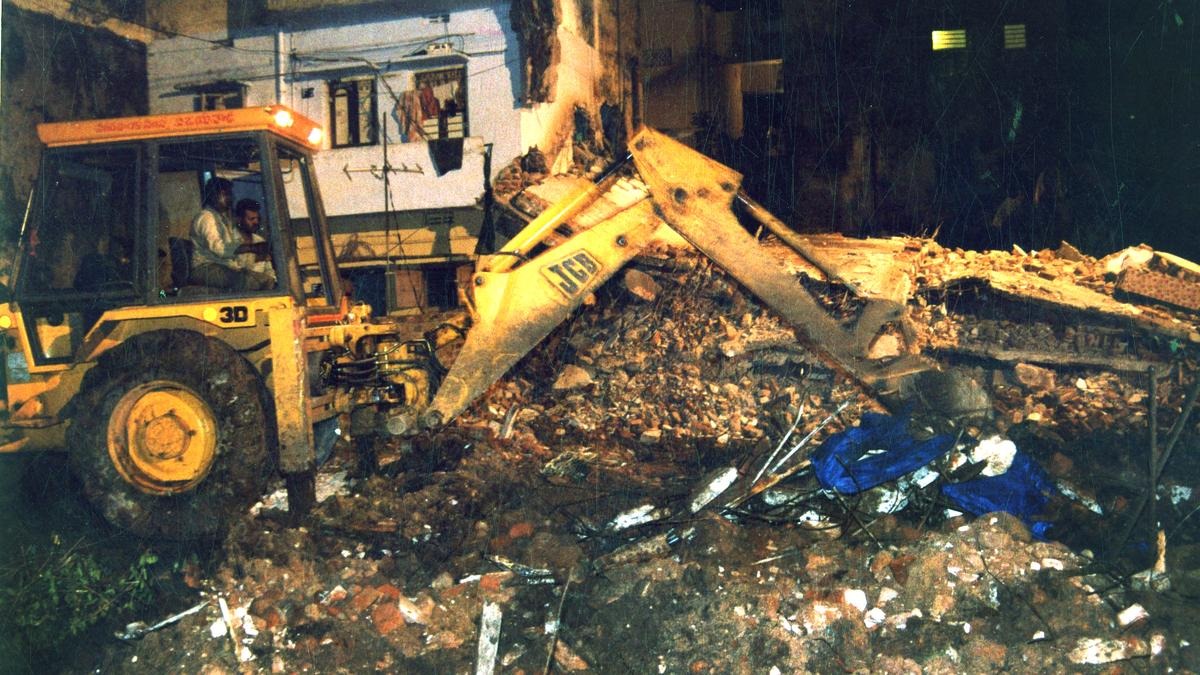Supreme Court Halts 'Bulldozer Justice', Prohibits Demolitions Until October 1
The Supreme Court of India has issued a significant order prohibiting the demolition of homes and private properties belonging to undertrials without prior permission from the court. This ruling comes in response to a petition filed by Jamiat Ulema-i-Hind, which sought guidelines and directions to curb what has been termed "bulldozer justice," a practice where properties are demolished without due legal process

On September 17, 2024, a bench led by Justice B.R. Gavai, along with Justice K.V. Viswanathan, emphasized that the law does not allow for the retributive demolition of properties owned by individuals who are accused but not yet convicted. Justice Gavai pointedly questioned the legality of demolishing someone's home simply because they are an accused in a case, highlighting that such actions contradict the principles of justice and due process
Context of the Ruling
The court's decision comes amid growing concerns over arbitrary demolitions carried out by state authorities, often targeting homes of individuals involved in legal proceedings. The petitioners argued that these demolitions not only violate legal norms but also infringe upon the rights of individuals who are presumed innocent until proven guilty. The court's ruling aims to establish a more structured approach to property demolitions, ensuring that such actions are not taken lightly or without proper judicial oversight
While the Supreme Court's order provides a protective measure for undertrials, it does not extend to unauthorized structures located on public roads, streets, footpaths, railway lines, and other public spaces. This distinction indicates that while individual rights are being safeguarded, the state retains the authority to address illegal constructions that pose public safety concerns
Previous Court Observations
In earlier hearings, Justice Gavai had made it clear that the law does not permit arbitrary actions against individuals based solely on their status as accused. He reiterated that any demolition must be substantiated by legal grounds and must follow due process. The court had previously invited suggestions from petitioners for formulating uniform guidelines against illegal demolitions, emphasizing the need for transparency and accountability in such actions
Jamiat Ulema-i-Hind proposed that authorities should provide prior notice of at least 45 to 60 days before any demolition takes place. This notice should specify the legal provisions under which the property is being targeted and hold officials personally accountable for any unlawful actions taken during demolitions
Government's Position
During the hearings, Solicitor General Tushar Mehta represented the Uttar Pradesh government and defended existing municipal laws that allow for the demolition of illegal structures. He denied allegations of targeted or communal demolitions carried out by state authorities. However, this assertion was met with skepticism from the bench, which underscored the necessity of adhering to legal protocols when taking such drastic measures
Implications of the Ruling
The Supreme Court's ruling is expected to have far-reaching implications for how state authorities approach property demolitions in India. By mandating judicial oversight before any demolition can occur, the court is reinforcing the principle that individual rights must be respected within the framework of law enforcement
This decision also serves as a reminder to state governments about their responsibilities in upholding constitutional rights and ensuring that their actions do not violate principles of justice. The ruling aims to prevent instances of "bulldozer justice," where individuals' properties are destroyed without due process or adequate justification
As this issue continues to unfold, it remains crucial for both state authorities and citizens to understand the legal boundaries governing property rights and demolitions. The Supreme Court's proactive stance in this matter reflects its commitmen



